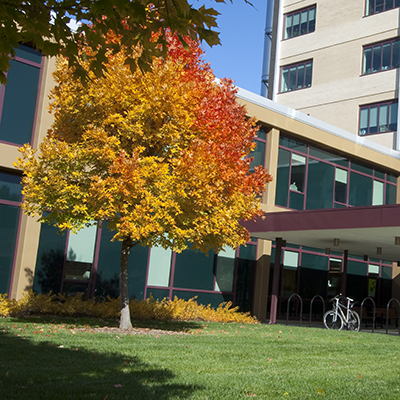
By Troy Fedderson | University Communication and Marketing
The University of Nebraska–Lincoln is home to 168 Huskers featured in the 2024 list of the world's most influential researchers. Four of those researchers are associated with the School of Natural Resources.
The Stanford/Elsevier Top 2% Scientists List is a comprehensive analysis of all peer-reviewed papers across scientific disciplines. It measures the significance of the research, including how often each study is cited in the work of other scientists. The publication is the definitive list of research that has made the most significant impact across each field of study.
“This list highlights the exceptional strength of UNL faculty and the transformative impact of their groundbreaking research, both in Nebraska and globally,” said Sherri Jones, interim vice chancellor for research and innovation. “It is a recognition that underscores the significance of our university’s research efforts and serves as a cornerstone for advancing our ambitious vision for the future.”
Current and former UNL researchers on the 2024 ranking include 60 from the College of Agricultural Sciences and Natural Resources; 43 from the College of Arts and Sciences; 45 from the College of Engineering; 12 from the College of Education and Human Sciences; five from the College of Business; two from the College of Architecture; and one from the College of Fine and Performing Arts.
The complete list, sorted by college, is available at https://news.unl.edu/article/168-huskers-ranked-among-the-worlds-top-researchers
Stanford University partners with Elsevier, a Dutch publishing and analytics company, to generate the list annually. The team uses data provided by Scopus, a source-neutral abstract and citation database.
Each scientist is assigned a score based on a variety of metrics, including h-index (a measurement of the impact and productivity of an author or group of authors) and adjusted citation counts. Scientists are classified into 22 scientific fields and 174 sub-fields according to the standard Science-Metrix classification.
The most current list provides a complete overview of citation year 2023, based on an Aug. 1, 2024, data snapshot from Scopus. An overview of methodology is available here.
Those associated with the School of Natural Resources are:
-Craig Allen Resilience Scientist
-Christopher Neale Director of Research, Daugherty Water for Food Institute
-Karl Reinhard Environmental Archaeologist
-Donald Wilhite Emeritus - Climatologist and Drought Management Specialist